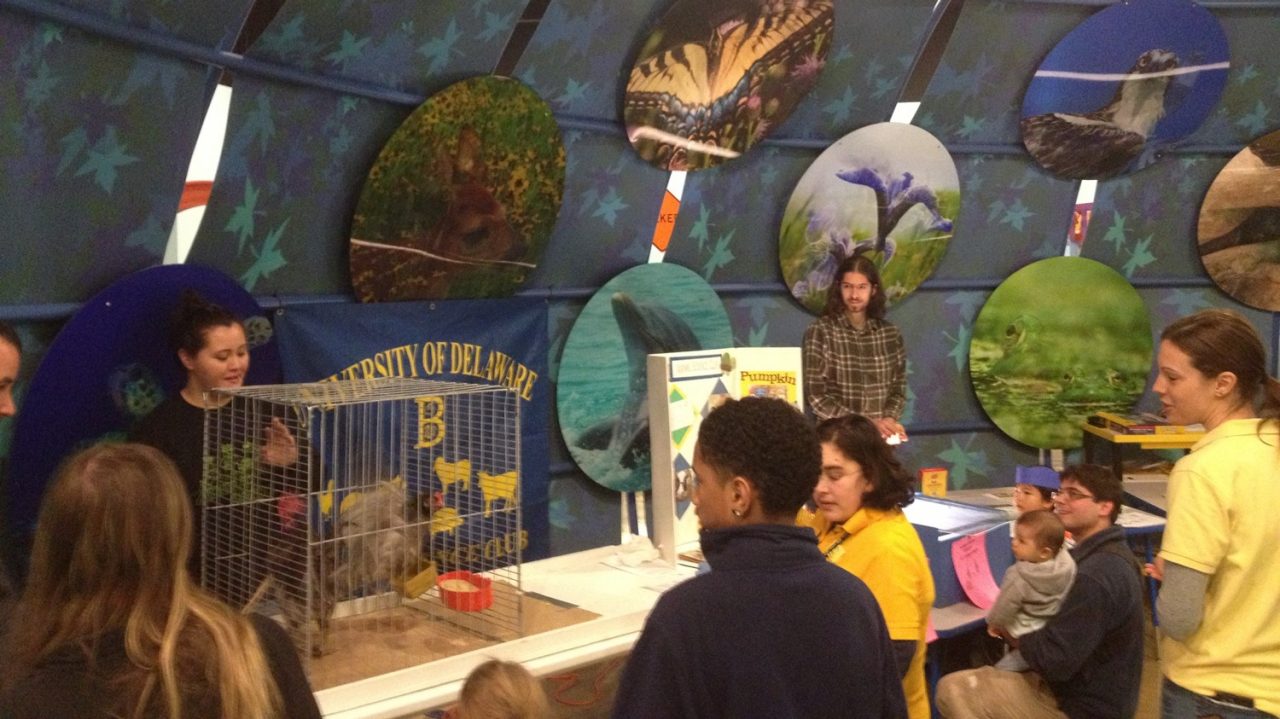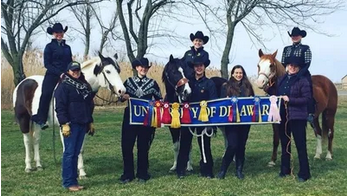
Pre-Veterinary Medicine major
Why major in pre-veterinary medicine?
If you want to contribute to a greater understanding of the complex relationship between the health of domestic animals, wild animals, humans and our shared environment, you have found the right place! Healthy, productive livestock and pets lead to healthy people. UD’s B.S. in Pre-Veterinary Medicine focuses specifically on veterinary school preparation, but also prepares graduates for careers in any life or health science. Blue Hen graduates not only are admitted to veterinary school at more than twice the national rate (acceptance rate of 89 percent versus 40 percent nationally), but also thrive in their vet school coursework and succeeding careers. Directly on UD’s main campus and contiguous to our $38 million, newly renovated Worrilow Hall lab space, you receive hands-on experiences with sheep, cows, horses and other domestic animals starting with your first, freshmen-year course. In addition to specialty courses like clinical veterinary skills and career exploration, take unique courses like One Health, which includes the interconnection of human, animal and environmental health.
What makes our program unique?
UD students are highly competitive for positions in graduate programs and for admission to veterinary schools. Over the last half dozen years, vet schools have admitted Blue Hen graduates at a rate more than twice the national average. Graduates attend some of the most preeminent vet schools both across the U.S. and internationally.
Our program gives students early exposure not only to high-level laboratory courses, but also hands-on animal interactions. Additionally, many students take part in undergraduate research as early as their second semester of their first year. Pre-vet students work closely with professors to solve research questions in areas like animal nutrition, immunology, virology and molecular biology. Students also hold jobs in settings like UD’s UDairy Creamery operation, on-campus farm positions and local veterinary clinic externships. But the experiences are not simply limited to Delaware; College of Agriculture and Natural Resources students explore the world through UD’s leading study abroad courses, including sustainable agriculture in New Zealand and wildlife conservation in Tanzania.
Finally, UD student clubs like the Animal Science Club and Pre-Vet Club are tight-knit communities, providing both social and professional growth opportunities. UD’s Pre-Veterinary Medicine provides students with a strong foundation for vet school and countless other life science careers with its interdisciplinary course load, various extracurriculars and hands-on experiential learning opportunities.
This sample shows just one possible pathway to earning a bachelor of science degree in Pre-Veterinary Medicine in four years. This plan does not replace the advice of your advisor.
Course highlights
Instructors introduce how domestic food animals function, genetics, nutrition, reproductive physiology, behavior and animal health. The course begins with a dialogue about the human-animal bond and the role of animals in society, and ends with the discussion of how agricultural animals are managed to produce safe and healthy food.
Instructors introduce the concept of One Health — the integration of human, animal and environmental health. The ultimate goal of One Health is prevention and early intervention, moving upstream of a health problem. Class discussion covers worldwide animal production practices, habitat destruction and other human activities, environmental changes, and the incidence of zoonotic outbreaks. Students focus on bacterial, viral and fungal zoonotic and emerging diseases like COVID-19, agriculture and the use and misuse of antibiotics in animal and human health.
Instructors cover the relationship between form and function in domestic farm animals. Students conduct comparative examination of body systems in order to better understand the various management practices employed in animal agriculture.
Modern technologies heighten the inexorable links between the animals and their environments, making environmental management more important. Instructors discuss the principles of animal environment management related to companion, farm and research animals. Course laboratories reinforce development of hands-on skills.
Instructors teach the fundamentals of physiology and lactation involved in initiation, maintenance and cessation of lactation, neuroendocrine control of lactation, nutrient absorption and processing by mammary gland and control of milk composition. Topics include mammals of commercial dairy importance as well as rodents, horses and humans.
Related student organizations
Associate Director, CANR Undergraduate Recruitment



